Who has Sir Keir Starmer picked to be in his Cabinet?
Sir Keir Starmer is appointing his new Cabinet after Labour swept to a landslide victory in the General Election.

Sir Keir Starmer is selecting his new Cabinet after Labour swept to a landslide victory in the General Election.
Here, the PA news agency looks at the appointments so far:
– Angela Rayner – Deputy Prime Minister and Levelling Up, Housing and Communities Secretary
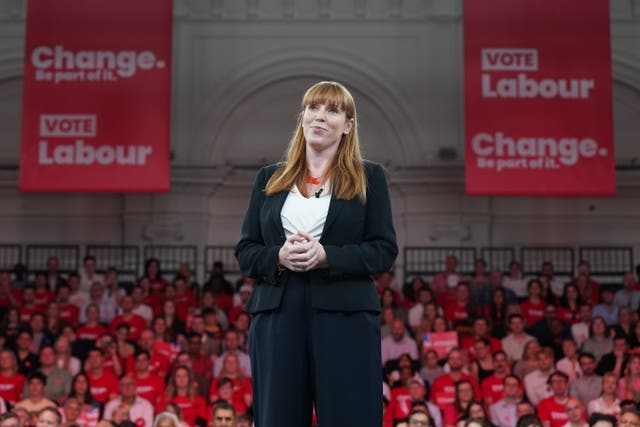
Like her predecessor, she worked her way up the hard way, leaving school at 16 having grown up in the squalor of a rundown council estate in Stockport, and cutting her teeth as a trade union official before embarking on a career in Parliament.
A self-described socialist, the Deputy Prime Minister and Housing Secretary’s brief has also included a major extension of workers’ rights – one of the most contentious elements of the new Government’s policy agenda.
Disclosures in an unauthorised biography by Tory peer Lord Ashcroft about Ms Rayner’s sale of a council house in 2015 led to a Greater Manchester Police investigation after the Tories complained she may have broken electoral law and dodged capital gains tax.
When the force announced – just days into the election campaign – that they would be taking no further action, Sir Keir said she had been fully vindicated, while she dismissed the saga as a Conservative bid to “clip my wings”.
– Rachel Reeves – Chancellor
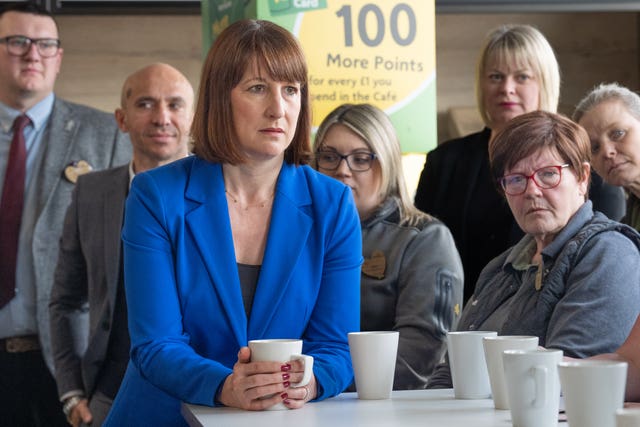
But she also made clear where her priorities were. “Glamorous and exciting are probably not two things you’d want from someone in charge of public finances – you want someone who’s steady, who’s serious, who’s responsible,” she told The Guardian.
A former child chess champion who counts a stint at the Bank of England and four years in private-sector banking among her credentials, Ms Reeves is said by allies to have the type of analytical mind required for the challenges that await her at the Treasury.
With her promise to serve as the country’s “iron” chancellor and emphasis on supply-side reform, she has invited comparisons between herself and Margaret Thatcher – to the dismay of some on the left.
But Ms Reeves has been unapologetically pro-business, talking up growth as the linchpin of success in government and embarking on her so-called “smoked salmon offensive” of breakfast meetings with leaders of the FTSE 250 in the months before the election.
Against the daunting backdrop of a sluggish economy and competing demands for public spending, Britain’s first ever female Chancellor will be responsible for sticking to Labour’s strict fiscal rules while implementing a series of tax hikes – hitting wealthy non-doms, oil and gas giants and private schools – to help fund its plans for improved public services.
She described her appointment to the role on Friday as “the honour of my life” and a sign for all women and girls that there should be “no limit to your ambitions.”
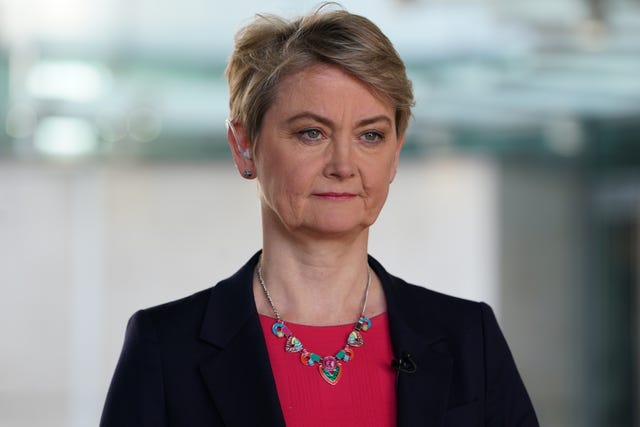
An early foray into politics came during her school days at a comprehensive in Hampshire, where she has recalled staging a “prefects’ strike” in protest over the disciplining of a fellow prefect for wearing the wrong colour socks.
Awarded a Kennedy scholarship after studying politics, philosophy and economics at Oxford University, Ms Cooper previously served as chief secretary to the Treasury in the Brown administration.
Her marriage to Ed Balls, Gordon Brown’s close confidant, made them the first couple to sit in Cabinet together.
Ms Cooper has announced a series of pledges as shadow home secretary, including to clear the asylum backlog, create a cross-border police unit to crack down on criminal smuggling gangs and put 13,000 more neighbourhood officers on the beat.
She inherits one of the most scrutinised briefs in government, as the UK grapples with an asylum backlog and small boat crossings in the English Channel.
– Pat McFadden – Chancellor of the Duchy of Lancaster
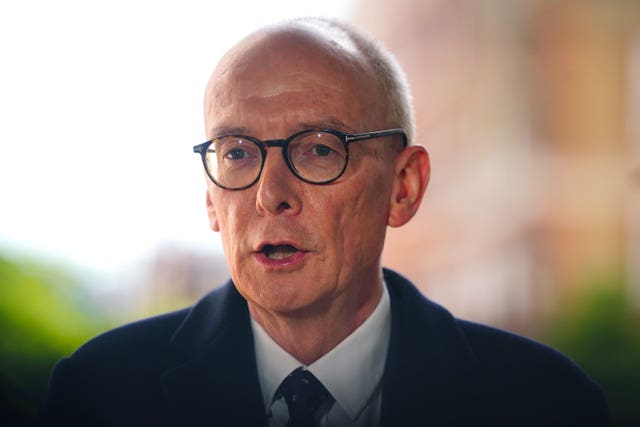
Softly spoken and serious, much of his work has taken place behind the scenes, though he is frequently relied on to reinforce the party line with appearances on the morning broadcast rounds.
Mr McFadden gives little away in interviews but is seen as a centre-left figure, having attended Mr Brown’s cabinet and worked as an adviser to Tony Blair.
Born in Glasgow to Irish-speaking parents from Donegal, his Labour roots go back past even the 1990s to his days as an undergraduate at Edinburgh University, where he was chair of Scottish Labour Students before working for Donald Dewar and later John Smith.
He was sacked from Mr Corbyn’s shadow cabinet for what the leadership branded “disloyalty”. This was said to include criticism of Mr Corbyn’s response to the 2015 Paris terror attacks and a Commons statement in which he called for a rejection of “the view that sees terrorist acts as always being a response or a reaction to what we in the West do”.
– David Lammy – Foreign Secretary
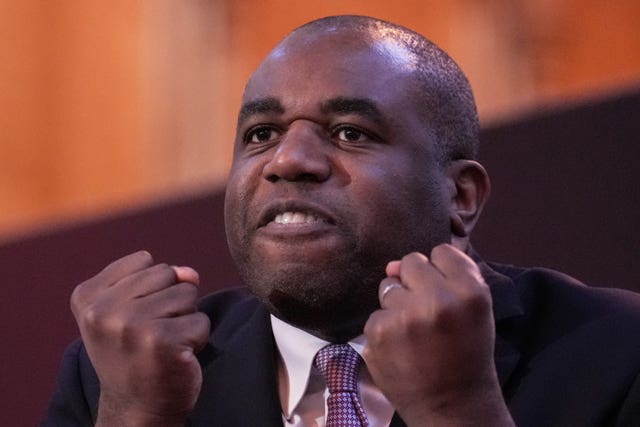
One of five siblings raised by a single mother in Tottenham – the constituency he would go on to win in 2001 – Mr Lammy sang as a choirboy at Peterborough Cathedral before studying at SOAS University and later becoming the first black Briton to attend Harvard Law School, where he forged a friendship with Barack Obama.
He has spoken of the fear and embarrassment he felt when he was first stopped and searched at the age of just 12, and made his name in politics campaigning against racial injustice and the profiling of black and ethnic minority groups.
Having served as a junior health minister under Sir Tony, Mr Lammy supported Mr Corbyn for the Labour leadership in 2015 before backing Sir Keir in 2020 and returning to the front bench as shadow justice secretary.
As shadow foreign secretary since 2021, he raised eyebrows earlier this year when he promised to find a “common cause” with Donald Trump if the former US president is returned to the White House, despite having previously called the Republican a “neo-Nazi sympathiser”.
The position has seen him tread a fraught path over the war in Gaza, stressing Israel’s right to self-defence but also saying that Labour would comply with an arrest warrant against the country’s premier, Benjamin Netanyahu, if the International Criminal Court were to issue one – and criticising “extremist rhetoric” from some Israeli ministers.
In Government, the brief puts him at the helm of UK diplomacy during a time of increasing global instability.
– Wes Streeting – Health Secretary
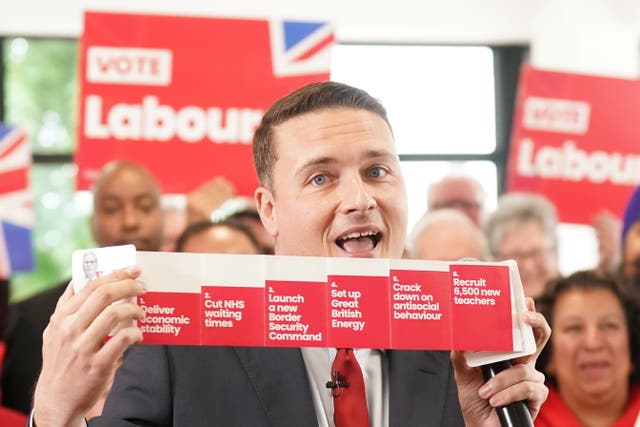
A self-described “geek” who wore his school badges with pride, he credits his parents and grandparents – one of whom was an armed robber, the other a Second World War veteran – with fostering his love of books, despite the strains of living in a cramped flat in London’s East End.
One of Labour’s most recognisable faces and never slow to attack the Tory record, Mr Streeting is seen as a confident media performer and has often been touted as a potential leadership contender.
He has been MP for Ilford North since 2015 and as Health Secretary will be responsible for overseeing the party’s mission to rebuild the NHS, including a pledge to create 40,000 new appointments each week.
– Bridget Phillipson – Education Secretary

Aged just 26, she went on to become MP for Houghton and Sunderland South in 2010 after working for several years at the women’s refuge her mother founded.
A close ally of the Labour leader, Ms Phillipson came from a struggling single-parent family but says she was far from the worst off in her class. Her upbringing shaped her approach to the education brief, in which she has outlined Labour’s mission to smash the “class ceiling” by removing barriers to opportunity for less advantaged children.
To the disappointment of some on the party’s left flank, free school meals – of which Ms Phillipson was a recipient while growing up – did not feature in the party manifesto.
Instead, it commits to free school breakfast clubs to prevent children starting lessons hungry.
– Ed Miliband – Energy Secretary
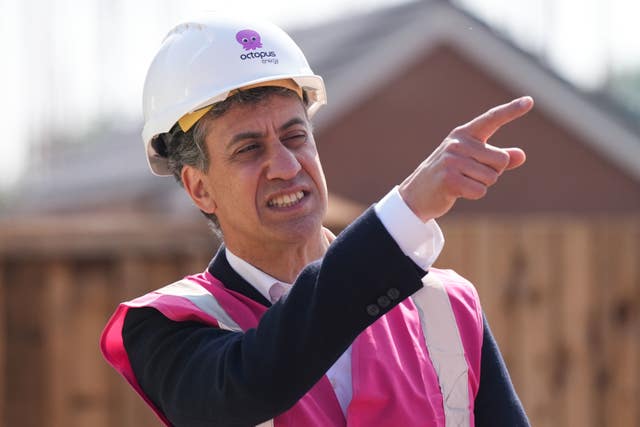
In the run-up to his May 2015 election defeat, Mr Miliband’s public image was damaged by what were perceived to be embarrassing photos of him eating a bacon sandwich and the revelation he had two kitchens in his north London home.
Theresa May was later accused of making a number of his policies her own when she became Tory prime minister in 2017, opting to cap energy prices and abolish estate agent fees for renters.
His more recent guise as “Green Ed” – running Labour’s net zero policy – has seen him champion the pledge to create GB Energy, a publicly owned clean power company.
A setback came last year when Labour watered down its promise to spend £28 billion a year on sustainable energy projects – of which the shadow climate secretary was seen as a key proponent – blaming Tory stewardship of the economy.
The MP for Doncaster North denied having considered quitting over the move, which instead saw the party commit to £23.7 billion in spending over the next parliament, saying the new plans will still help to move the dial on the environment.
– Liz Kendall – Work and Pensions Secretary
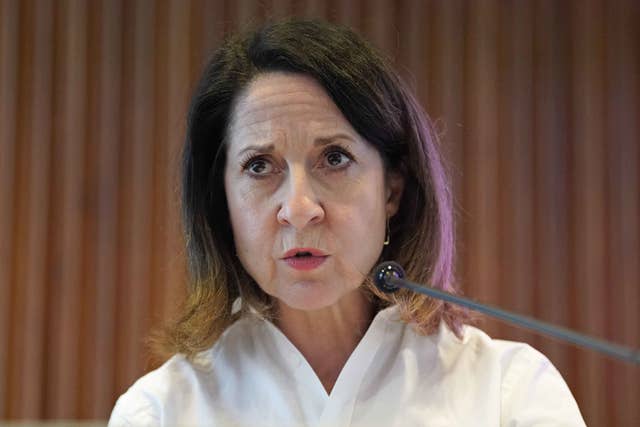
She set out a tough stance on welfare in a speech earlier this year, during which she said there would be “no option for a life on benefits” for people who can work under Labour.
As an ambitious shadow health minister, she was the first to declare her hand in the leadership contest won by Mr Corbyn in 2015, when she warned that Labour could stay out of power forever unless it moved towards the centre ground.
A former special adviser to Harriet Harman and then Patricia Hewitt – whose Leicester seat she inherited – she has previously described herself as an unlikely lover of rap music, counting Eminem and Public Enemy among her favourites.
– Shabana Mahmood – Justice Secretary
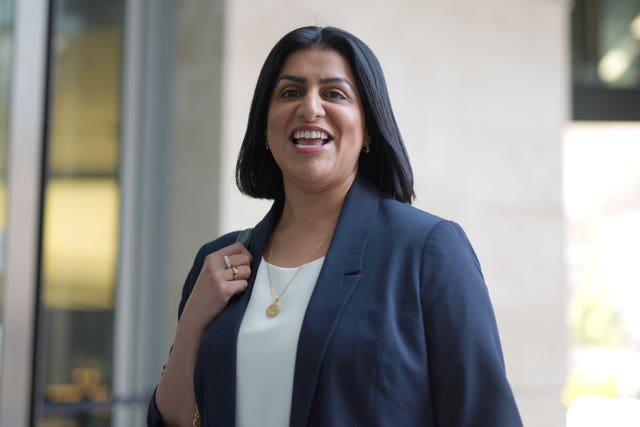
One of the first Muslim women elected to the Commons, she won the seat of Birmingham Ladywood in 2010.
Ms Mahmood is seen as a key ally of fellow former lawyer Sir Keir and is credited with playing a key part in preparing the party’s campaign machine.
Born in Birmingham with a twin brother, she has said her childhood dream was to become a real-life version of ITV’s Kavanagh QC rather than a politician.
She told the BBC’s Political Thinking podcast last year how outgoing Tory leader Rishi Sunak promised to vote for her as president of the junior common room during their university days – after she targeted him in canvassing because they were both “firmly of the geek extraction”.
– John Healey – Defence Secretary
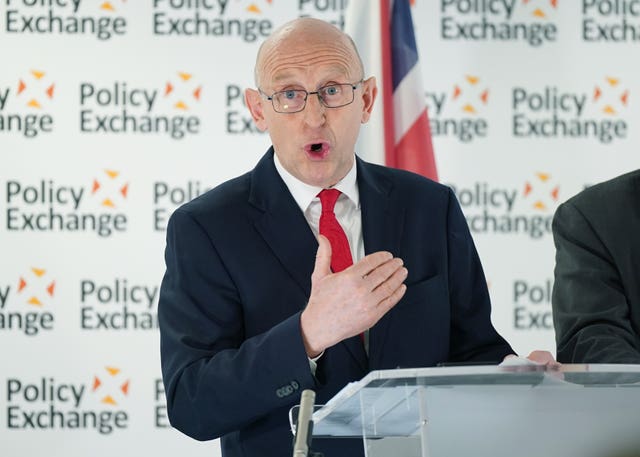
His parliamentary career has seen him back the invasion of Iraq and more recently oppose the Tory government’s reduction in the size of the Army to 72,500 by 2025.
But a question mark still hangs over how Labour would oversee the defence budget, with the party having pledged to reach a spending target of 2.5% only when “economic conditions allow”.
– Jonathan Reynolds – Business Secretary
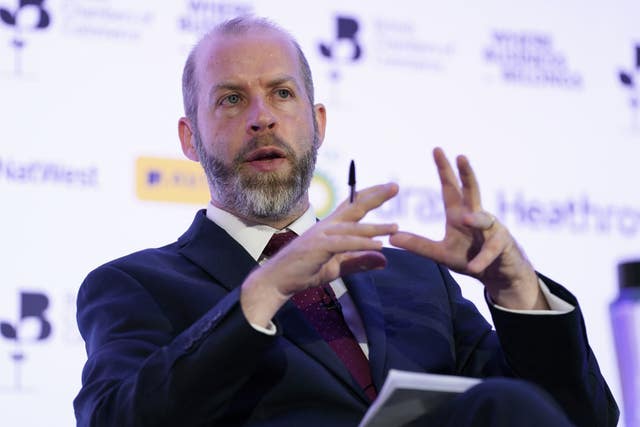
Elected MP for Stalybridge and Hyde in 2010, he resigned as a shadow minister under Mr Corbyn and went on to criticise the leadership’s economic policy.
As chairman of Christians on the Left, Mr Reynolds has described his faith as hugely important to his politics. In 2013 he told the Commons he would vote for equal marriage “because I am a Christian, not in spite of it”.
Born in Houghton-le-Spring, he studied law at Manchester University before entering Parliament at the age of 28.
– Peter Kyle – Technology Secretary
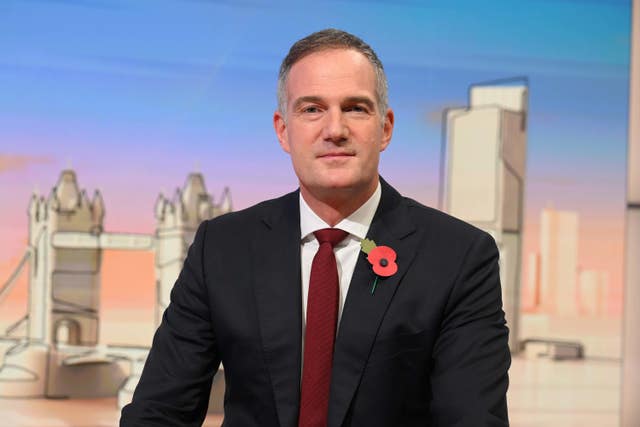
Mr Kyle struggled with dyslexia growing up and has spoken of leaving school without many qualifications before being told while at university that he had a reading age of eight – though he overcame this to gain a doctoral degree.
He was an aid worker in the Balkans before becoming a Blair-era special adviser focused on social exclusion policy. In Parliament he has campaigned for the voting age to be lowered to 16 and was a vocal critic of Mr Corbyn’s leadership before serving in various positions in Sir Keir’s shadow cabinet.
– Louise Haigh – Transport Secretary

The MP for Sheffield Heeley will be regarded a standard-bearer of the soft left of the party in a Cabinet prominently featuring Blairite figures.
Once described by former Commons speaker John Bercow as having “terrier-like intensity” in her campaigning against the closure of tax offices, she cut her teeth as a shop steward for the union Unite and volunteered as a special constable in the Metropolitan Police before entering politics.
– Lisa Nandy – Culture Secretary
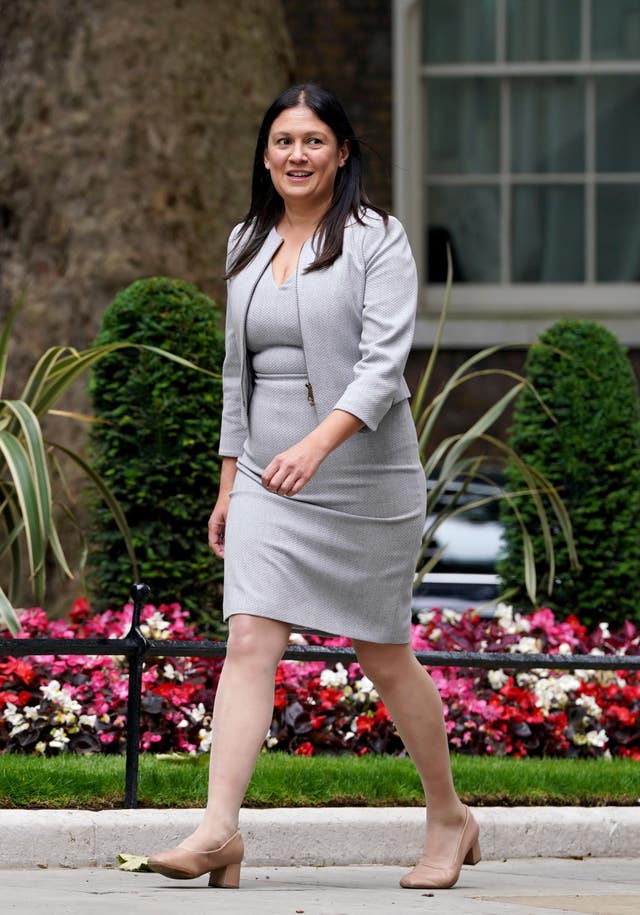
Raised in 1980s Manchester, Ms Nandy previously served as shadow levelling up secretary before she was demoted in Sir Keir’s 2023 reshuffle.
Having founded the Centre For Towns think tank, she was outspoken after the 2019 election about the need to win back Labour’s former industrial heartlands where voters switched in their droves to the Conservatives.
Politics runs in the family – her maternal grandfather was a Liberal MP and her father, Dipak Nandy, a famous Marxist academic.
During the 2020 leadership race in which she came third, Ms Nandy criticised “anti-media and anti-BBC feeling” and said she would protect the licence fee if she ever became prime minister.
– Steve Reed – Environment Secretary
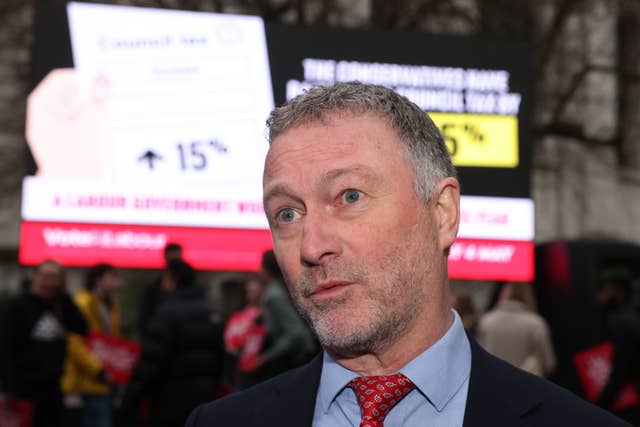
Growing up in the quiet commuter town of St Albans, his entire family worked in a printing factory, which he described as the heart of his community until it was shut down in the 1980s.
He joined the Labour Party soon after its closure, blaming Margaret Thatcher’s government for its fate during an economic recession.
– Hilary Benn – Northern Ireland Secretary
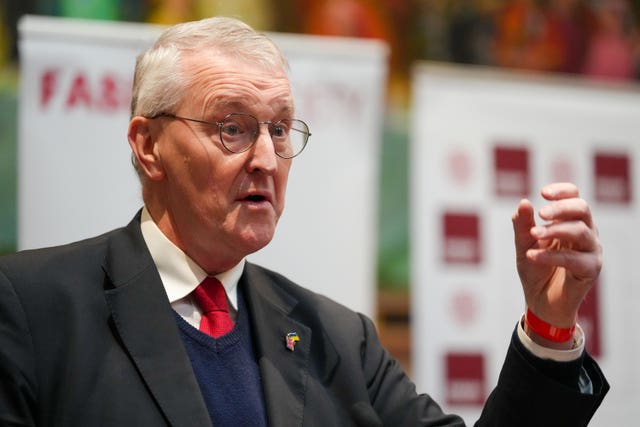
During the 1999 contest for the Leeds Central seat that he would go on to represent for decades to come, Mr Benn described himself as a “Benn, but not a Bennite”.
Like his father, he is teetotal and vegetarian. Unlike his father, Mr Benn supported the Iraq War while serving in the Blair government, and later, while shadow foreign secretary, defied then-leader Mr Corbyn to back military action against so-called Islamic State in Syria.
He has served as shadow Northern Ireland secretary since 2023, an appointment that was welcomed by Ulster Unionist Party leader Doug Beattie as “an indication of the importance (Sir Keir) places on Northern Ireland”.
– Jo Stevens – Welsh Secretary
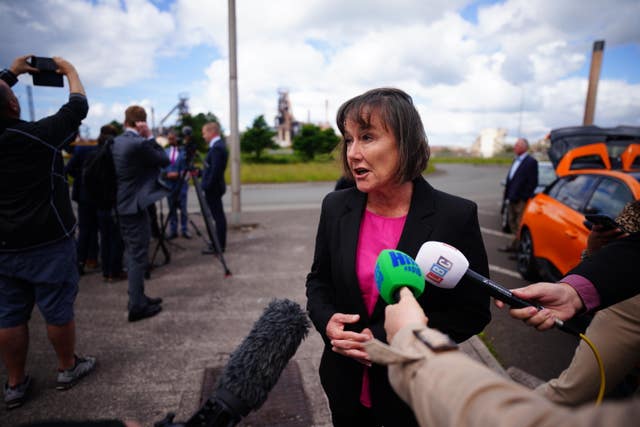
Ms Stevens has opposed the devolution of justice powers, which has sometimes put her at odds with the Welsh Labour administration.
– Ian Murray – Scottish Secretary
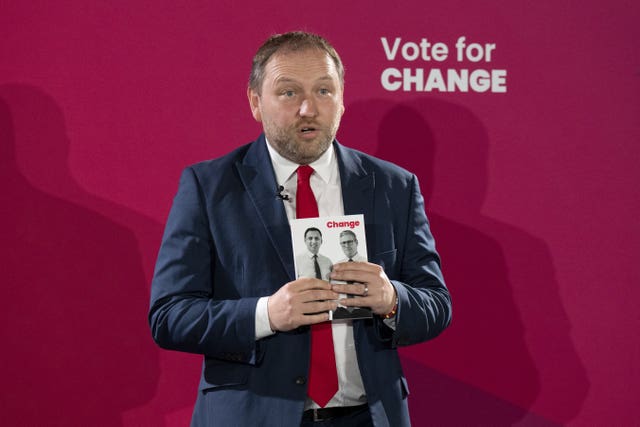
A critic of former leader Mr Corbyn, Mr Murray has campaigned against Scottish independence and won the backing of Sir Tony Blair and Mr Brown during an unsuccessful bid for the Labour deputy leadership in 2020.
– Lucy Powell – Commons Leader
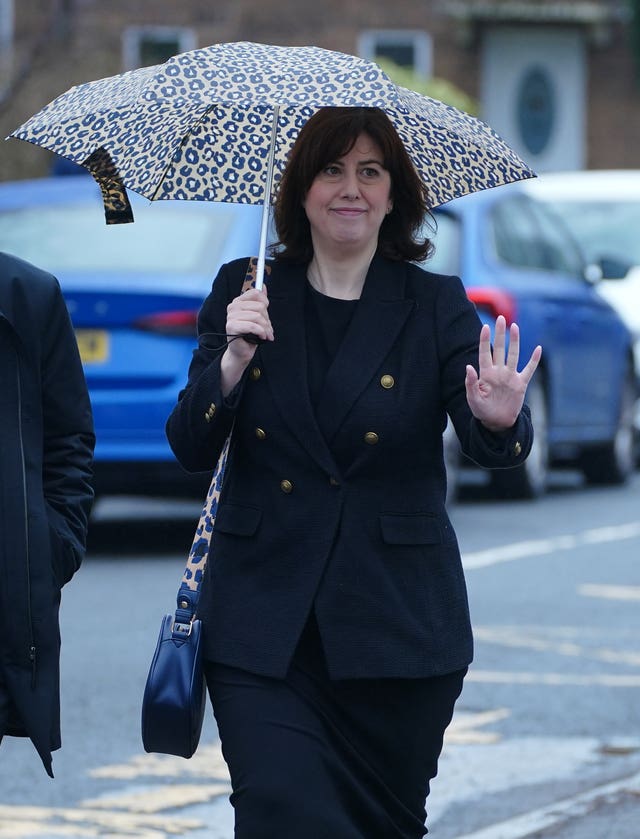
She became known in the last parliament for her colourful sparring matches with Penny Mordaunt.
– Baroness Smith – Leader of the Lords
Baroness Smith entered the Lords in 2010 after holding a number of ministerial positions but losing her bellwether seat of Basildon when the Tories swept to power.
She has served as shadow leader of the upper chamber since 2015 and will now lead the House from Government.
Sir Keir also appointed Sir Alan Campbell as chief whip, Darren Jones as chief secretary to the Treasury and barrister Richard Hermer KC as attorney general. They will attend Cabinet meetings.





